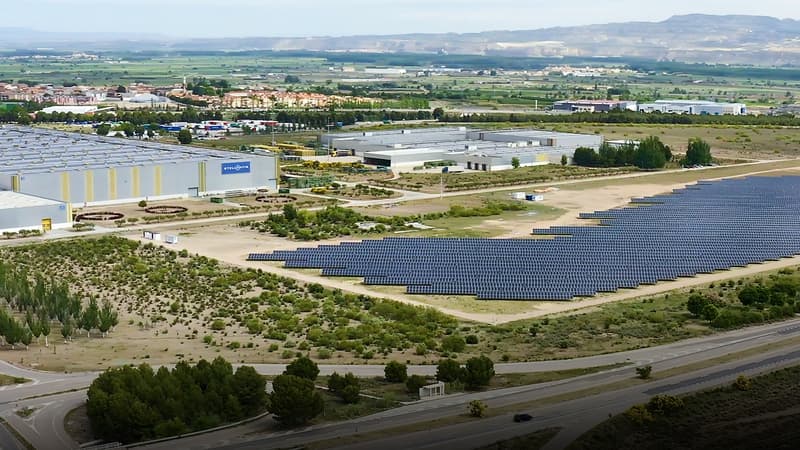Your electric car purchased in 2030 will have a good chance of being manufactured… in Spain. In fact, our European neighbor has established itself for many years as one of the main producing countries on the continent, in particular with the factories of the two “French” groups, Renault and Stellantis (ex-PSA).
1.5 million electric vehicles “made in Spain” in 2030?
Logically, with the aim of moving towards electricity, this bastion of the European automotive industry is also converting to the production of vehicles equipped with these “zero emission” engines.
According to Inovev forecasts, Spain will produce close to 1.5 million 100% electric cars in 2030, that is, half of its automobile production at that time. It is slightly more than in Germany, with 1.3 million units forecast, and much more than in France, with a projection of 800,000 units.
Inovev lists the future vehicles that will be produced in Spain, such as the trio of the Stellantis group, Opel Corsa-e, Peugeot e-208 and Lancia e-Ypsilon, whose next generations are expected by 2024 and must be produced at the Zaragoza plant (site ). produced by the current generation of the Corsa).
Still at Stellantis, the Citroën e-C4 and C4X are produced at the Villaverde plant. The Vigo plant is already assembling the Peugeot e-2008 and recovering production of the Citroën e-Berlingo Peugeot e-Partner and Opel Combo-e utility vehicles and their Toyota derivatives, hitherto produced in Ellesmere Port, in the United Kingdom.
Ford plans to assemble electric vehicles at a factory near Valencia.
Four Gigafactories projects
On the Volkswagen side, the Martorell plant, near Barcelona, must ensure the production of the future ID.1 and ID.2 and their versions in Skoda, Cupra and Audi, that is, an estimated volume of 500,000 units. year. The Navarrese plant, located in Pamplona, which currently assembles the T-Cross, Polo and Taigo, must also start producing electric cars.
Beyond vehicle production, the German group also plans to install a Gigafactory to produce its own batteries from 2026. A site installed near Valencia, with a planned capacity of 40 GWh in the long term. In total, last March, the site InsideEVs identified 5 battery factory projects in Spain, out of around 40 in Europe.
Great absence of these manufacturers that bet on Spain for its electric shift: Renault. The French group, however, has a local production capacity currently estimated at 580,000 units, and it is there that it assembles in particular the Renault Captur, the Mégane or its latest SUV, the Austral. Hybrid models at the moment but not 100% electric. Like the new Mégane e-Tech assembled in Douai, the diamond brand is focusing more on its ElectriCity pole, in northern France, to produce its “zero emission” models.
Spain, the second largest car producer in Europe
According to data from ACEA (Association of European Automobile Manufacturers), Spain stands out as the second largest car producer by volume, behind Germany. From 1.5 million passenger cars assembled in 2012, production topped 2.2 million units in 2016, before falling to 1.6 million last year, amid covid and component shortages.
Germany maintains a significant lead with 2.8 million units produced in 2021 and 4.5 million in 2019. France ranks third, with 1.6 million in 2019, 840,000 units last year.
Source: BFM TV


